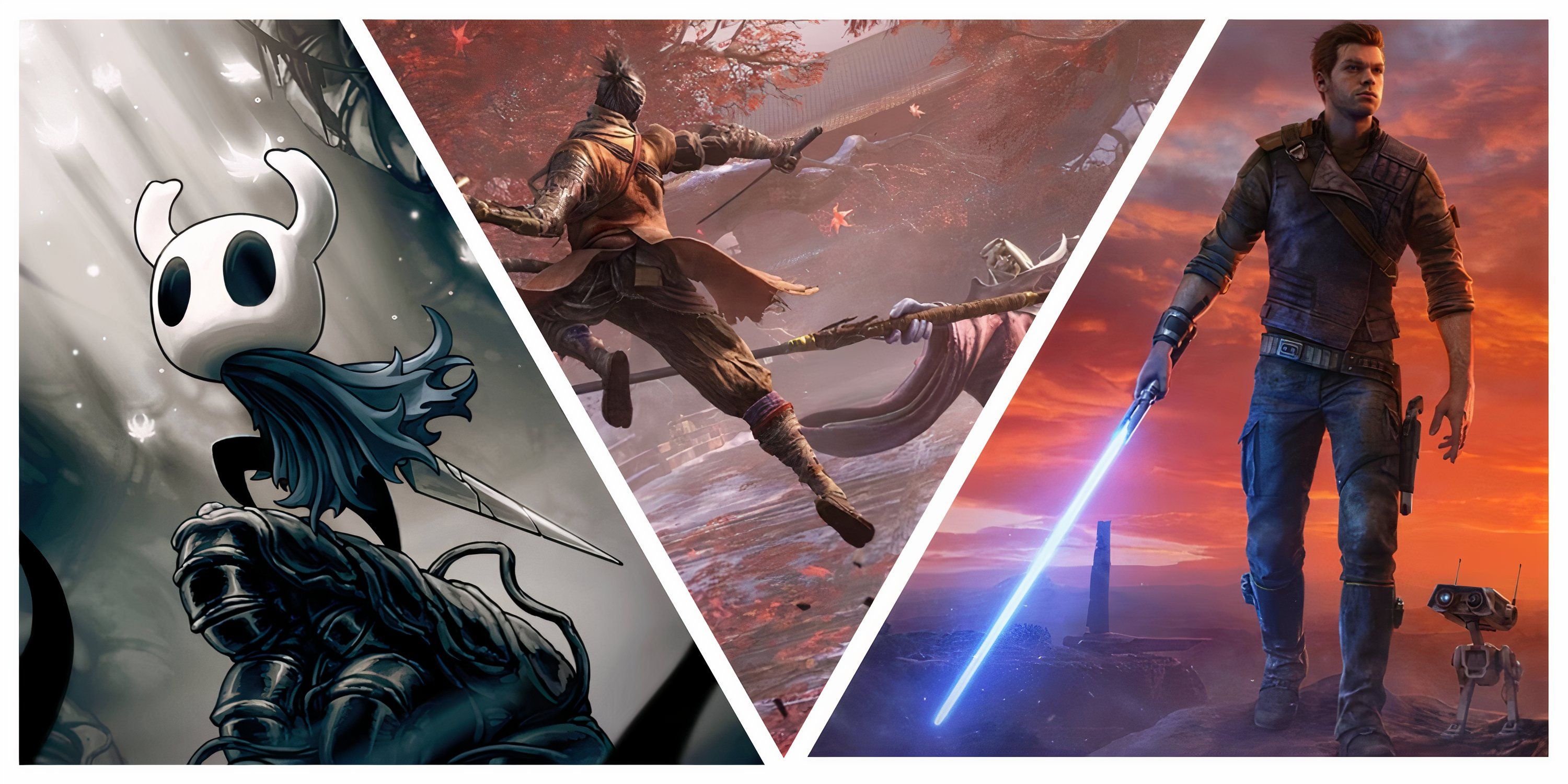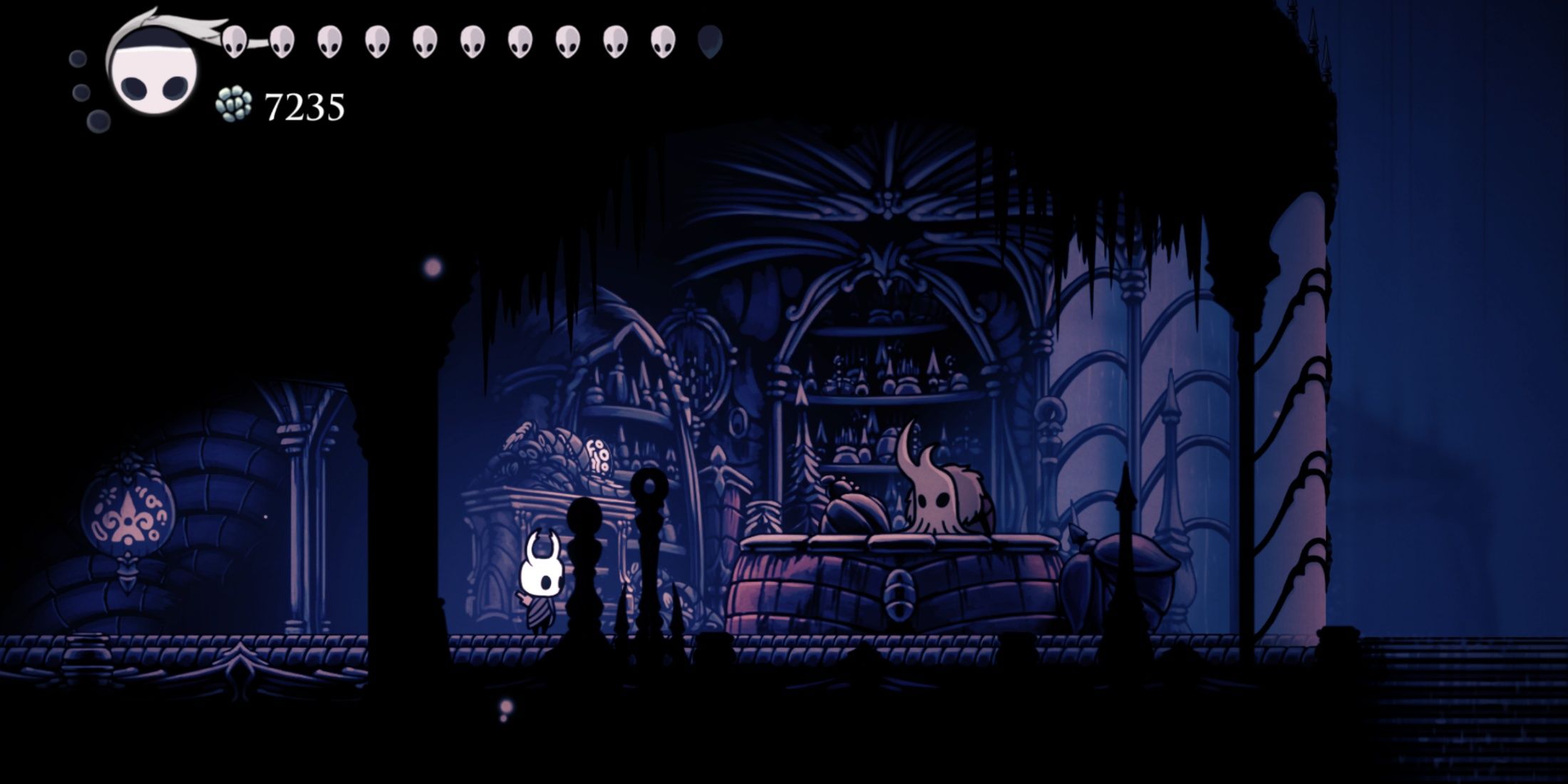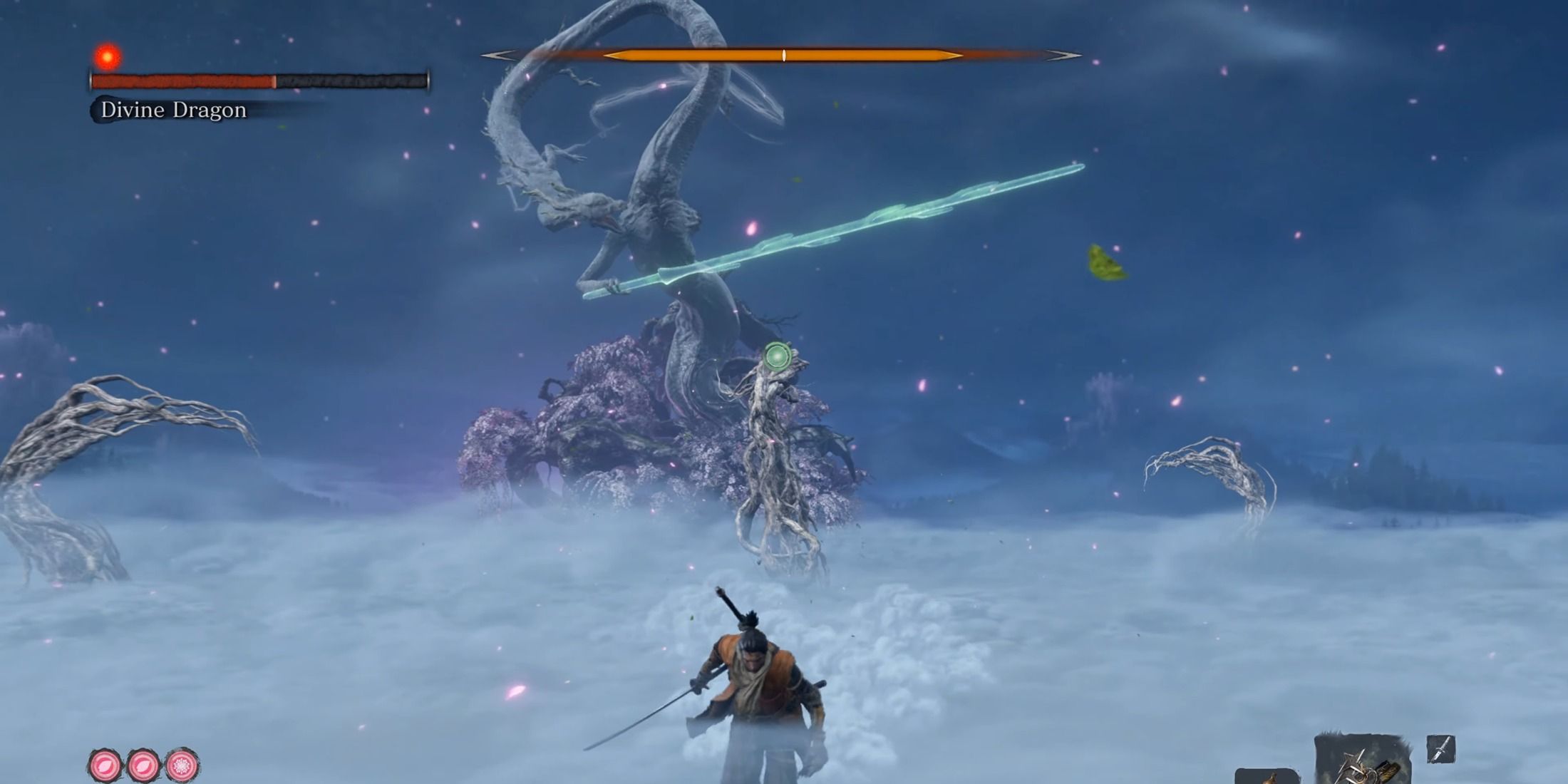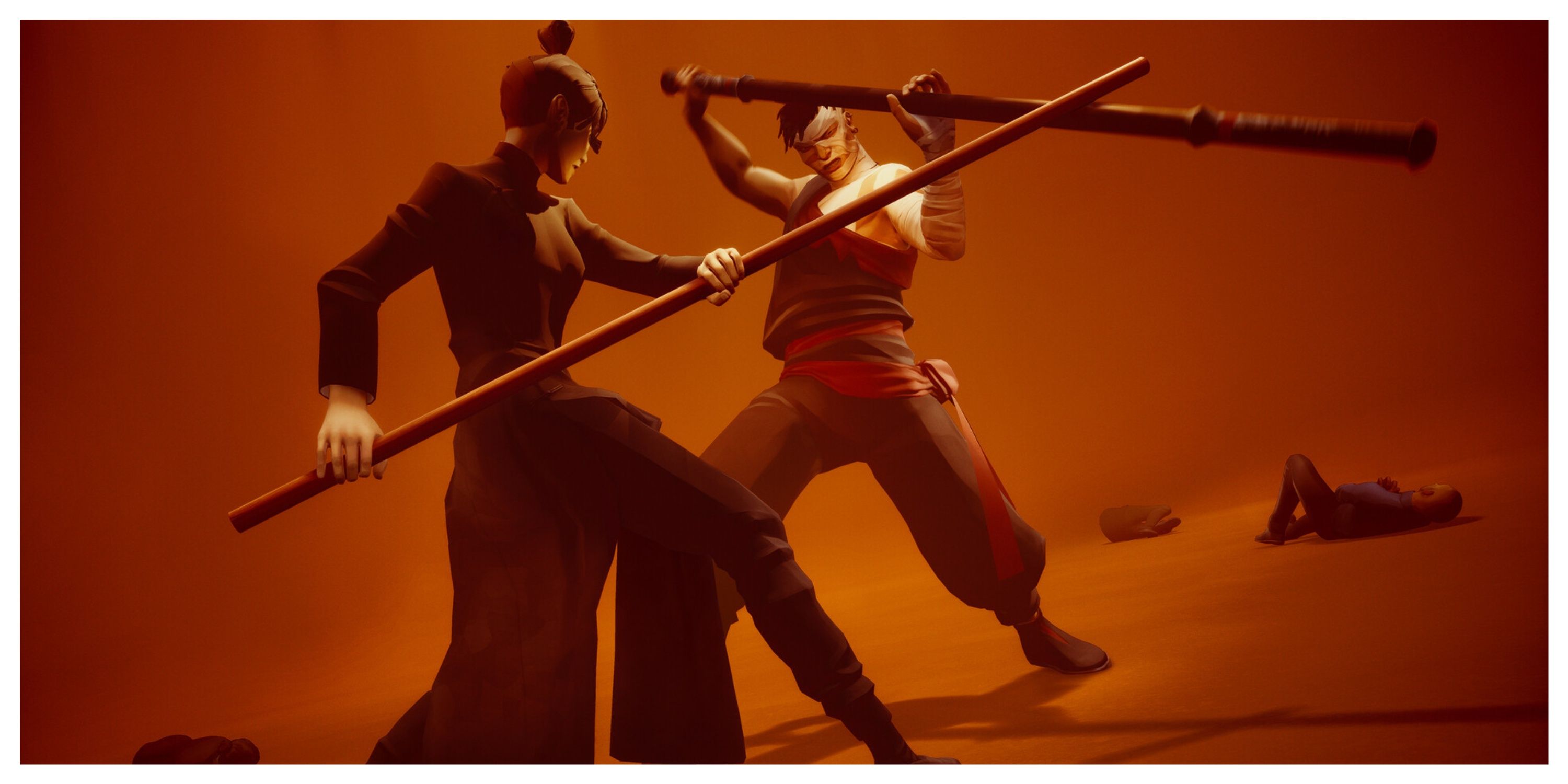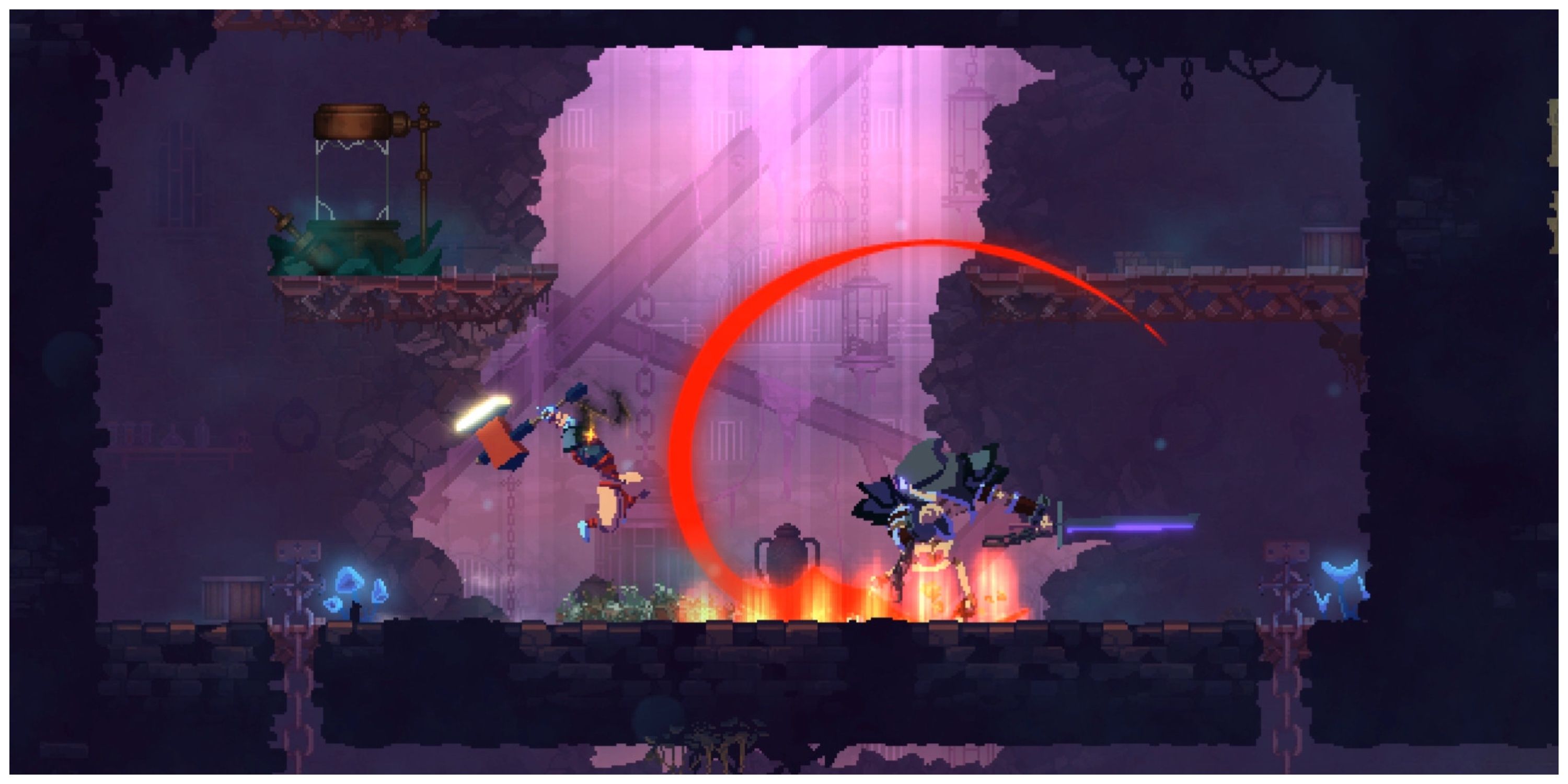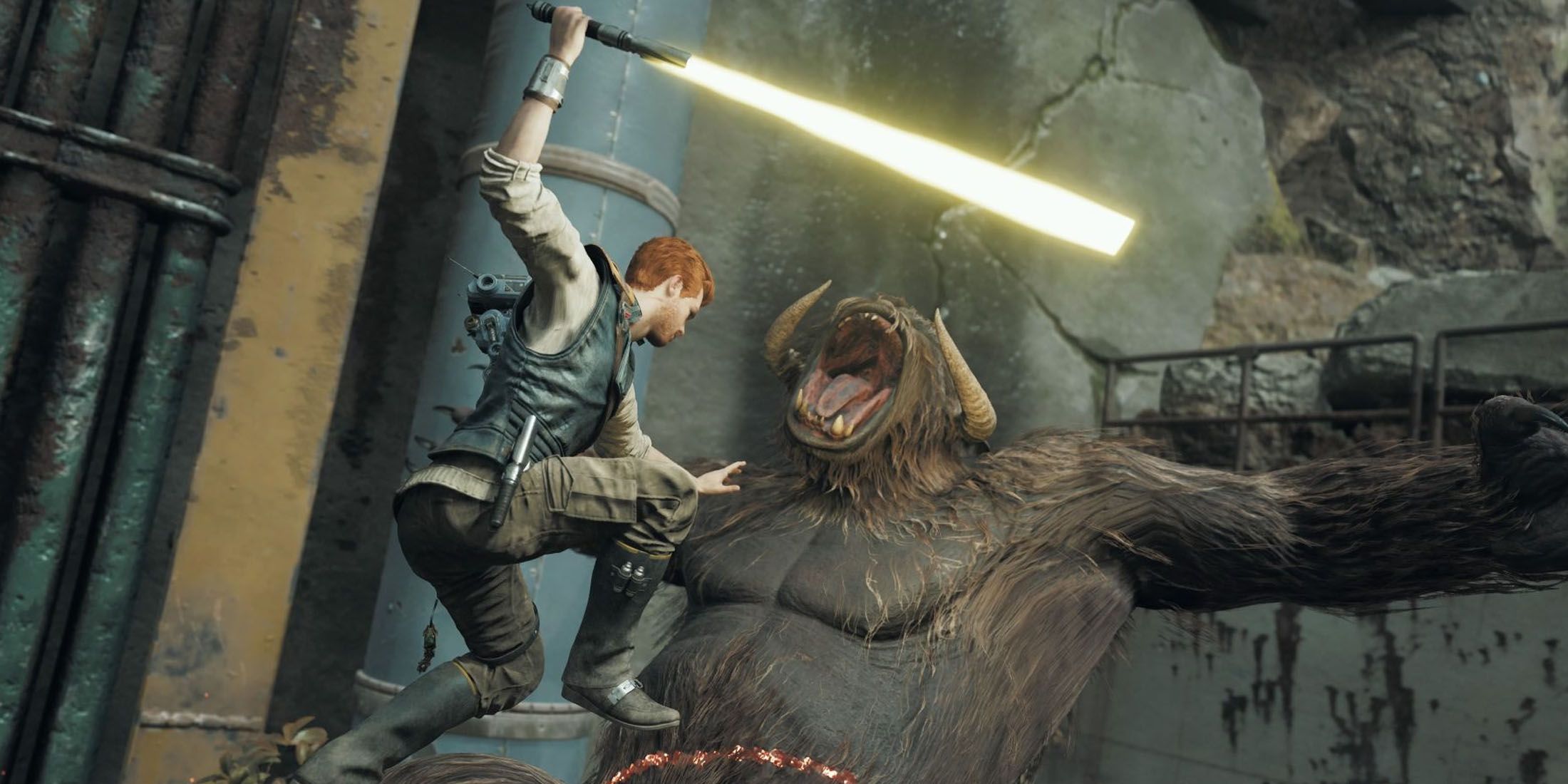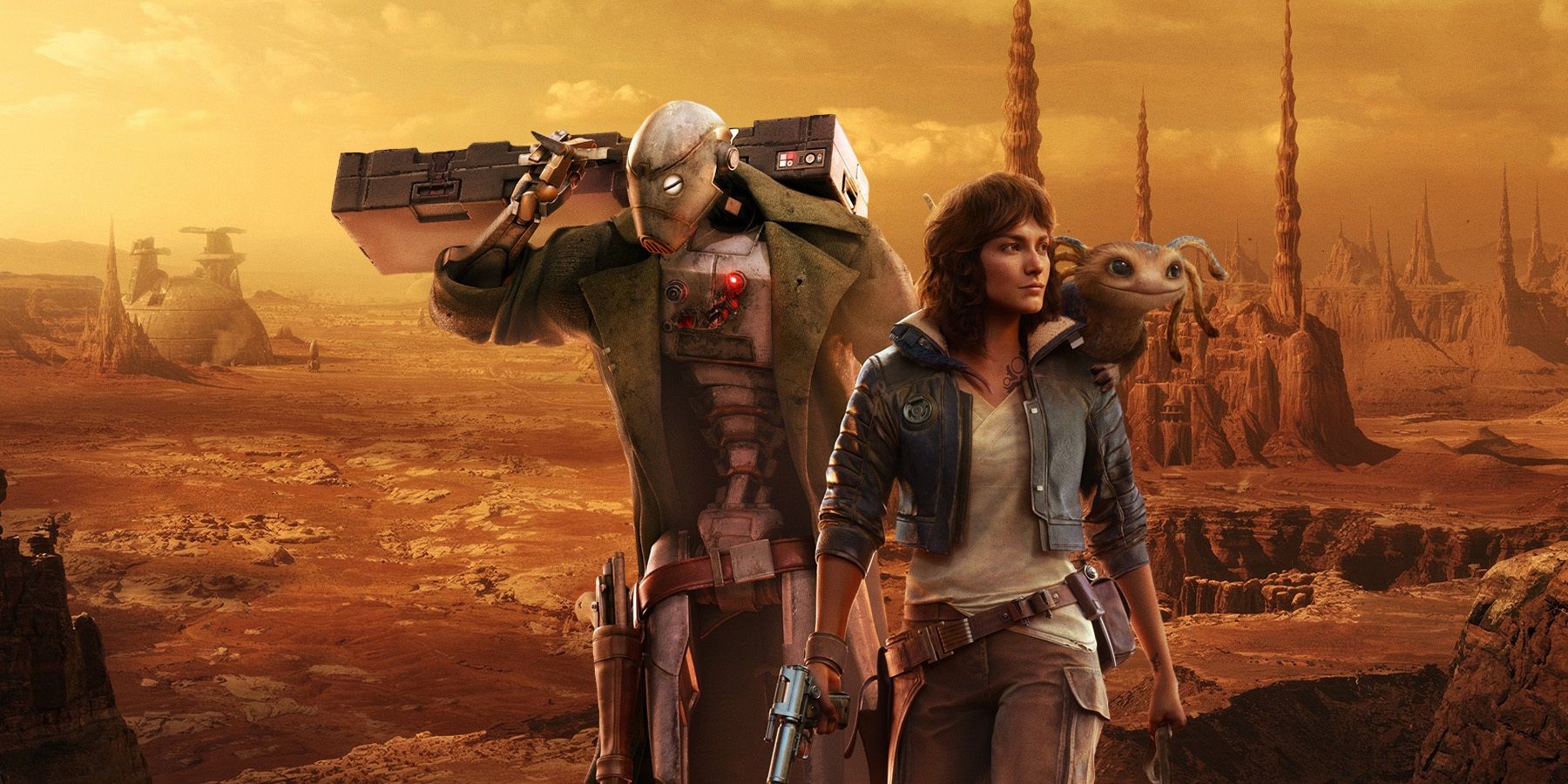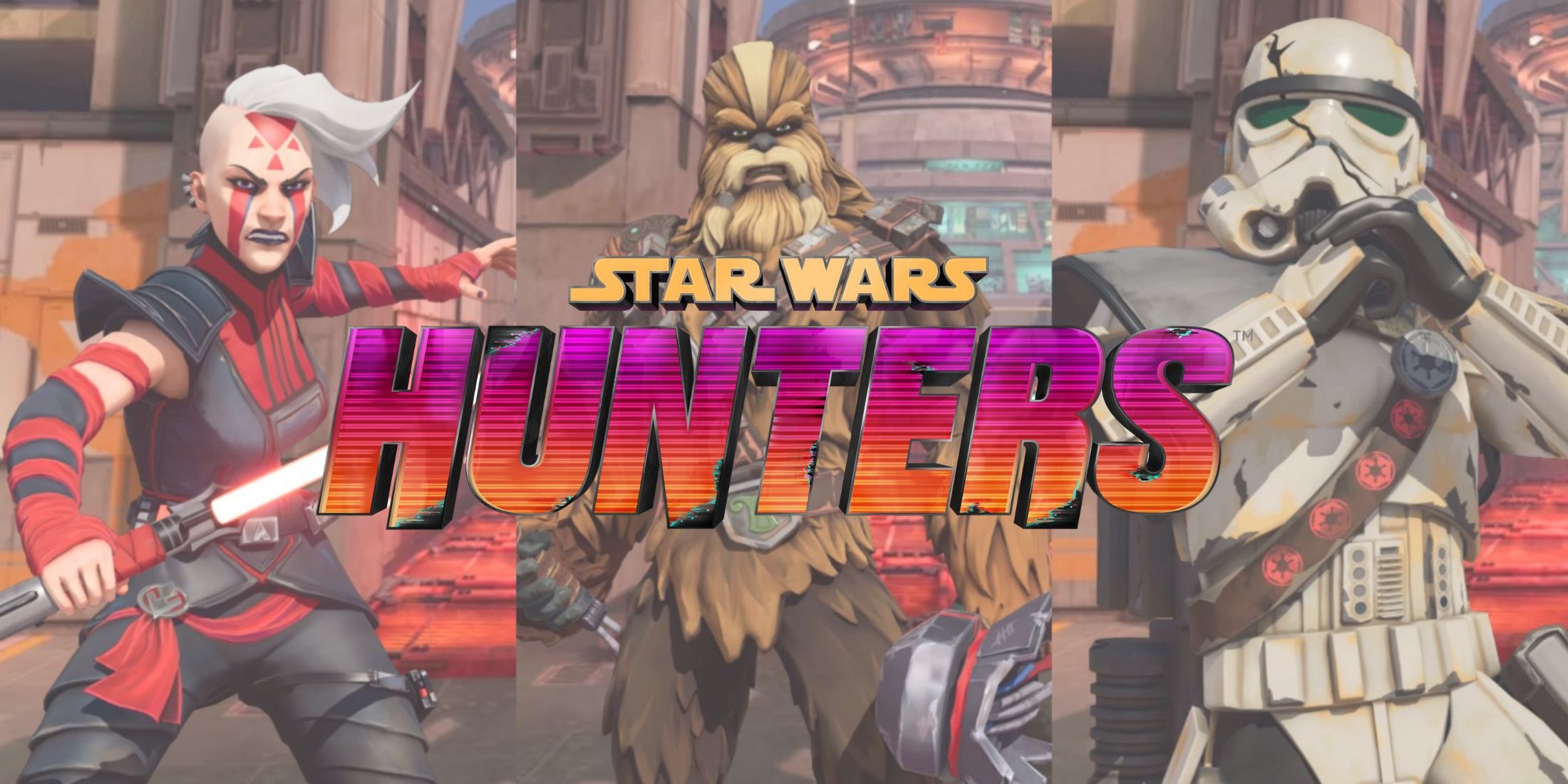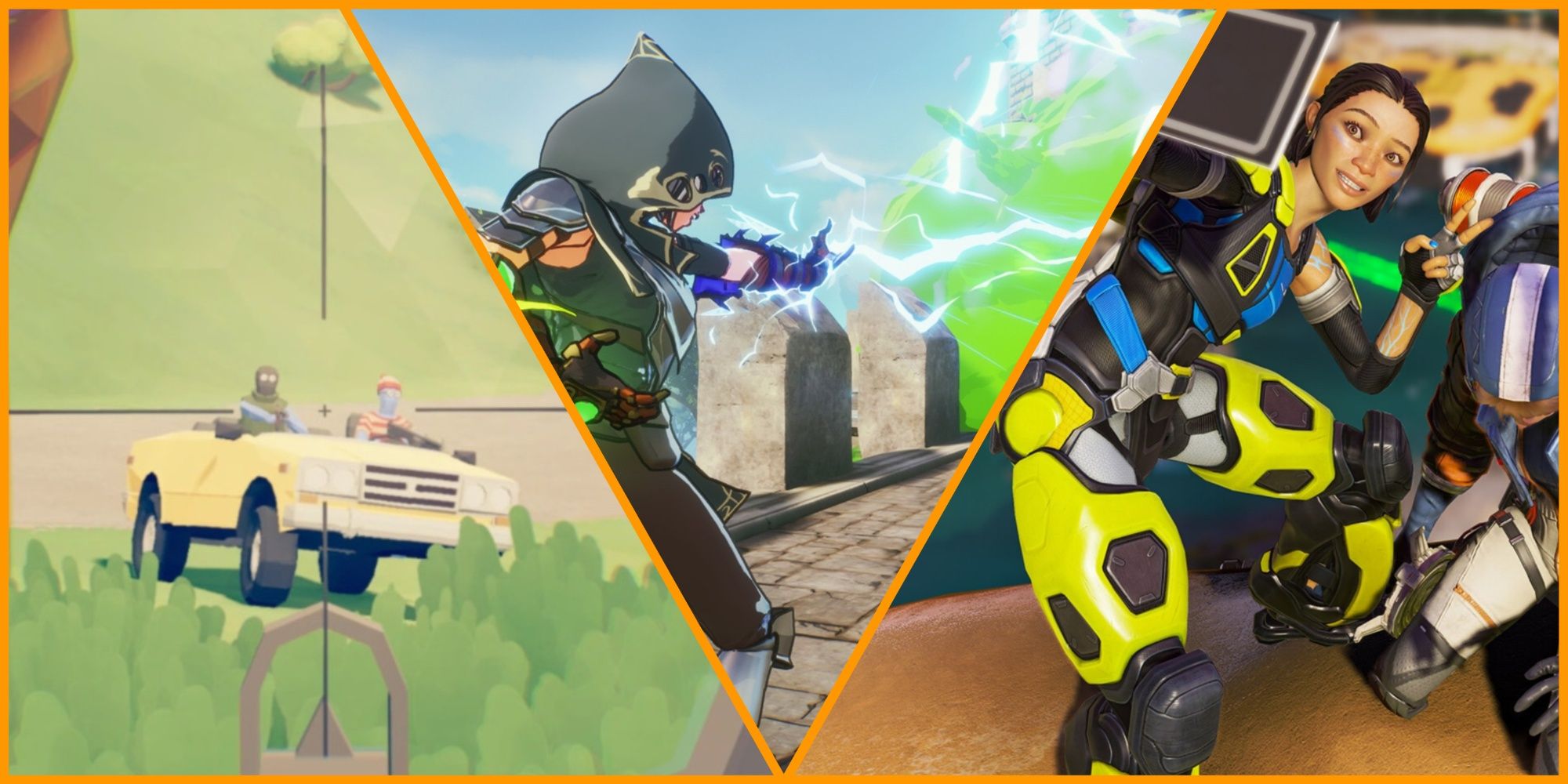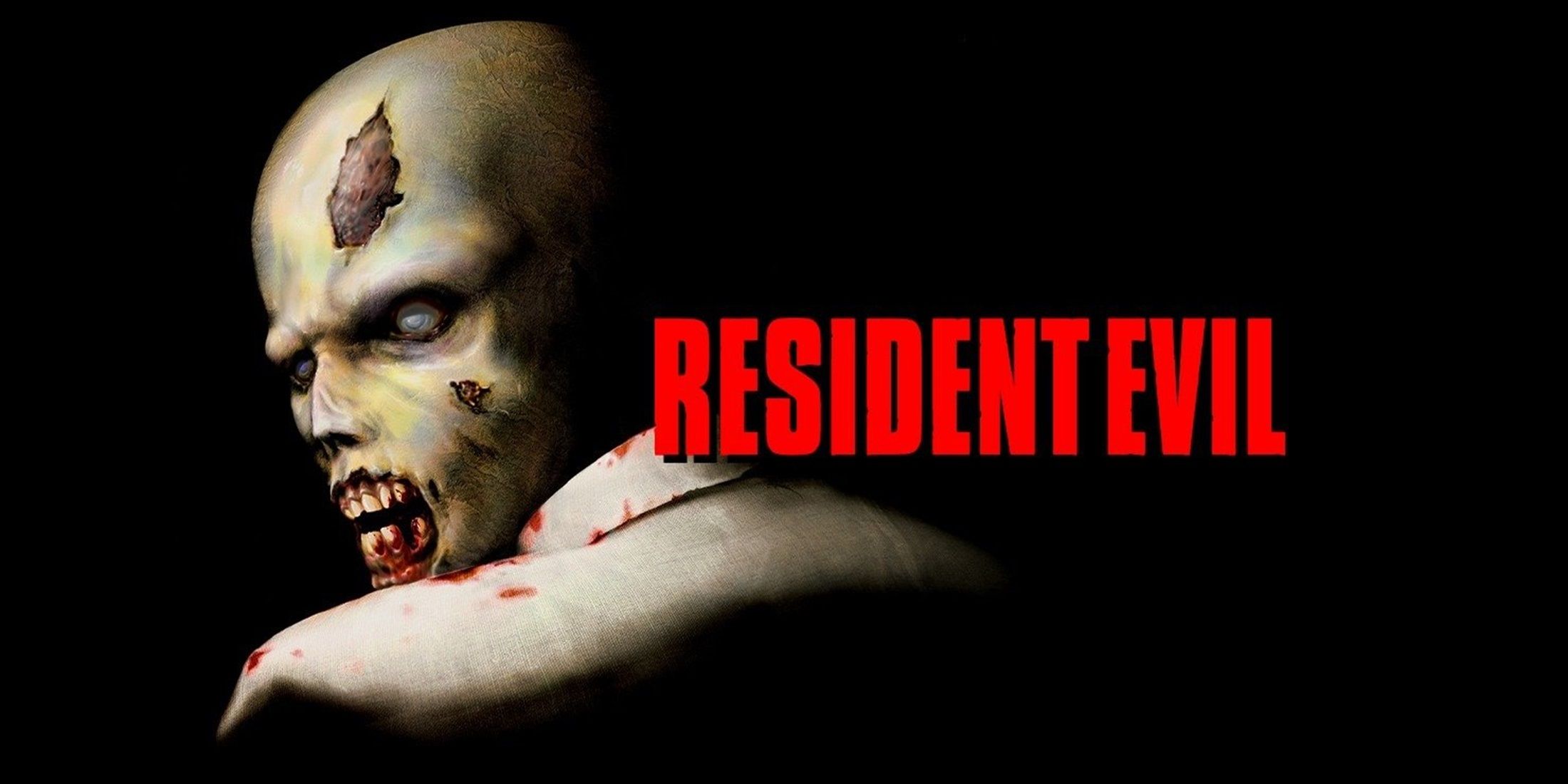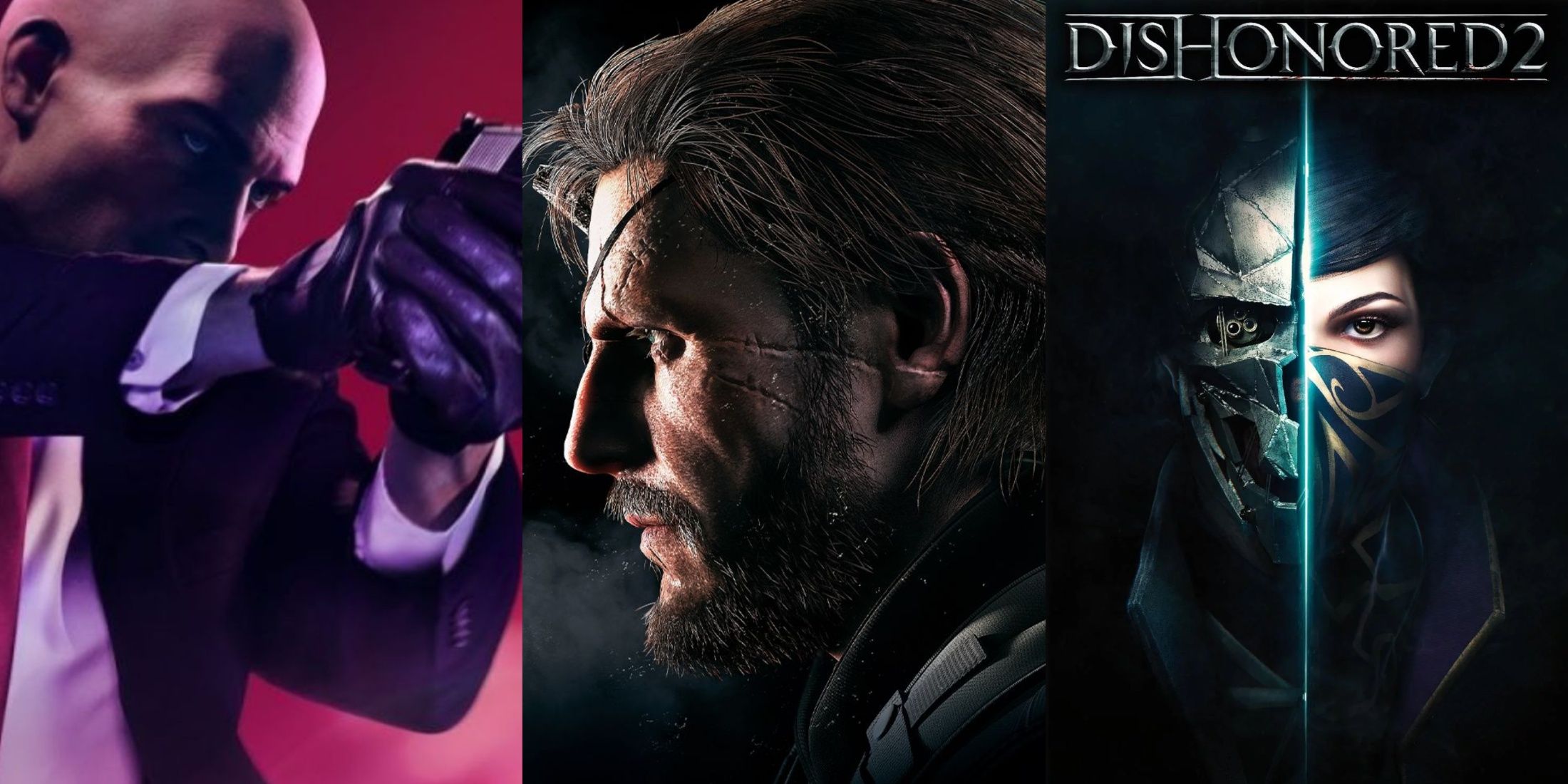When Demon Souls kicked off the Soulslike genre, it also reimagined the RPG. Many games that followed adopted the RPG mechanics of building a character and enhancing their stats (sometimes with the help of level grinding) in order to survive the harsh combat.
However, as more and more Soulslike games appeared, some have attempted to move away from the traditional RPG elements that are usually featured. Though players can still upgrade certain abilities and weapons in an RPG-like fashion, it’s pretty hard to not find a game that does this in one way or the other. Games since the beginning of time have had power-ups after all. Here are some Soulslikes that stray the furthest from RPG mechanics.
6 Blasphemous
Pixelated souls
With its dark and gothic art style, Blasphemous is everything players would expect from a Soulsike. However, whilst the style and brutal combat follow the traditions of the genre, the game has its own clear identity as an action-platformer.
Among the action platforming, players face combat that requires precise timing in order to defeat enemies and bosses. Each death will teach players methods of how to navigate around enemy patterns and get that timing just right. Unlike other Soulslikes, Blasphemous has no stat leveling or character builds, swapping this out for Metroidvania-style exploration. Players will find new abilities, but they merely enhance the core combat mechanics and traversal.
5 Hollow Knight
Cute But Deadly
Hollow Knight has become a favorite among both Metroidvania and Soulslike fans. The game sees players exploring the interconnected, labyrinthine world of Hallownest in order to discover new abilities and reach new areas where they’ll face challenging enemies and bosses.
The beautiful 2D hand-drawn art style may fool players at first, but underneath its presentation is a game that is as challenging as the best that the Soulslike genre has to offer. Though there are Soulslike elements here, such as a dark, melancholy atmosphere, precision-based combat, and the collecting (and losing) of Geo (the game’s equivalent of Souls currency), it trades RPG mechanics for Metroidvania features instead.
4 Sekiro: Shadows Die Twice
Souls Without The Character Building
Rather than customize the appearance of the player character, choose a class, and then build them up with stats and leveling, FromSoftware strays from their usual formula to deliver something new with Sekiro. The player controls a specific character, a shinobi known as Wolf but later given the name Sekiro.
The action emphasis, featuring mechanics such as jumping and the use of a grapple hook, is already a far cry from the more down-to-earth nature of the developer’s previous Souls series. But while the combat still remains brutal, many of the RPG elements are stripped away completely. As mentioned, there is no stat building, with progression instead coming in the form of unlocking skills and techniques, something found in many non-RPG games. This leaves the game arguably harder than Dark Souls, with the focus entirely on mastering the challenging combat, reacting, and parrying at the right time to ensure a successful playthrough.
3 Sifu
Getting Older Every Time You Die
Many games get compared to Dark Souls purely because of their difficulty, sometimes as a meme, with Cuphead being one of the best examples of this. However, it takes a lot more to fall under the Soulslike umbrella than difficulty or aesthetic. Whilst it’s difficult to find Soulslikes that don’t incorporate some sort of light RPG elements, Sifu is one of the purest examples of a Souls-inspired game that lacks RPG mechanics.
Sifu takes the precision and timing-based combat from Soulslikes and puts it into martial arts form. It also takes the Souls game staple of losing currency upon death but with a unique twist. Instead of gambling on the loss of all precious “souls” (or equivalent) every time players enter a fight, the punishment after a death results in the player character aging. This raises the pressure, especially as there are no RPG elements such as leveling up.
2 Dead Cells
A Fusion Of Many Genres (Except RPG)
Dead Cells combines notes of Roguelike, Metroidvania, and Soulslike flavors within its gameplay. There’s fast-paced action in the form of exploration and combat that sees players jump, dodge, and use special abilities.
Rather than losing currency or souls upon death, everything is lost, akin to a Roguelike. However, exploration is more Metroidvania-esque whilst combat is very Soulslike, requiring precision and pattern memorizing. With these elements combined, there’s no room left for RPG elements, so once again, players won’t find any leveling or stat building here.
1 Star Wars Jedi: Fallen Order & Jedi: Survivor
Jedi Souls
The Star Wars Jedi Games are probably some of the best and most successful examples of an action-adventure game incorporating elements of the Soulslike formula. Borrowing heavily from the Souls genre, Jedi features several familiar mechanics, such as losing all XP on death and then having to hunt down the enemy that bested the player in order to regain lost XP. The combat is also a challenging mix of stamina management, with a typical focus on blocking and dodging enemies to avoid massive damage.
Meditation points are also a borrowed feature, serving as the game’s equivalent of Dark Souls’ campfires. These act as checkpoints and fast travel spots where health is restored and skills are upgraded at the cost of enemies respawning. Though abilities can be upgraded during the course of the game, the Jedi series doesn’t go as deep with its customization as an RPG, instead resembling more of a Metroidvania in terms of progression. Players also control a specific character, Cal Kestis, rather than building their own.


